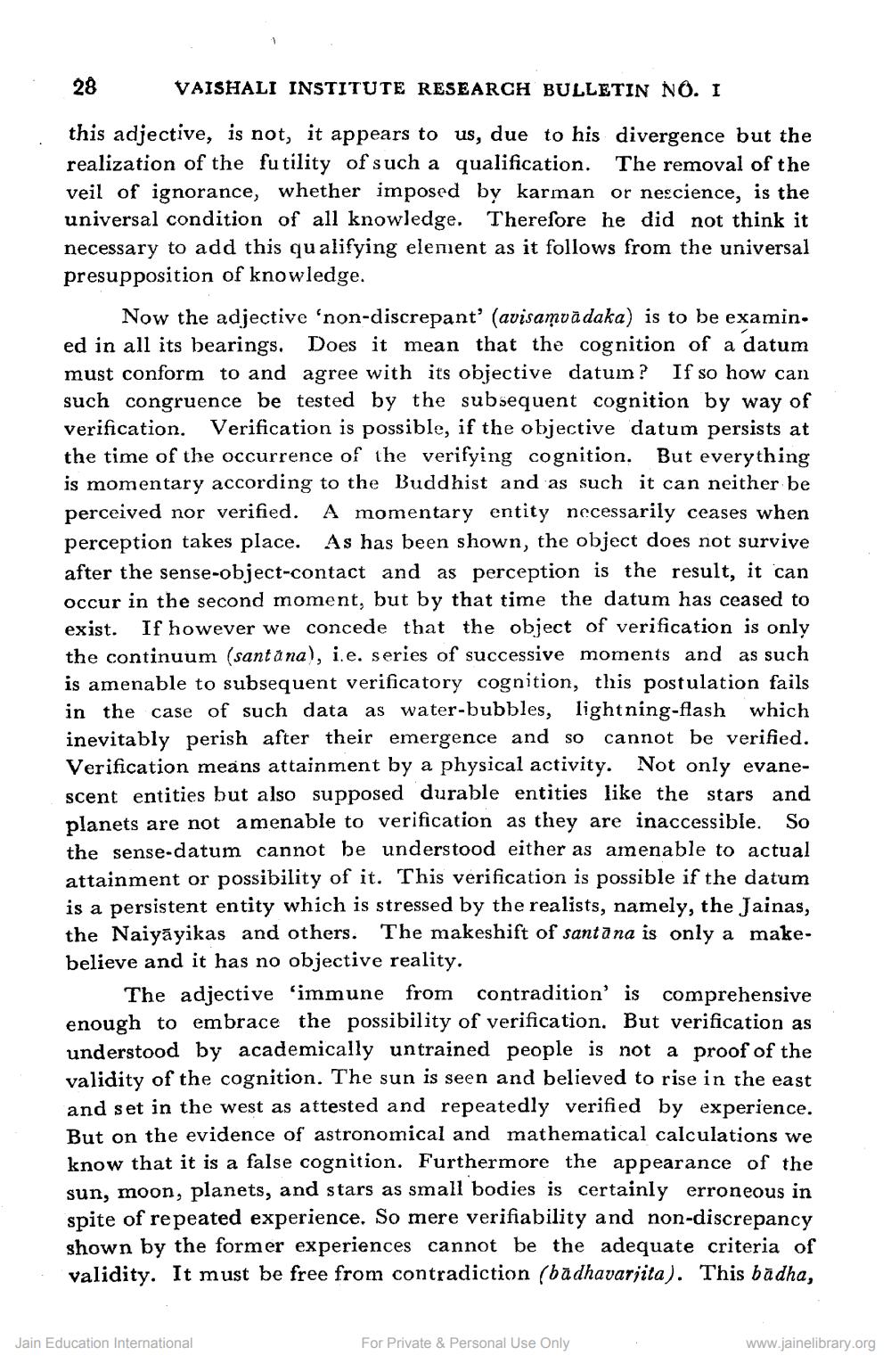________________
28
VAISHALI INSTITUTE RESEARCH BULLETIN NO. I
this adjective, is not, it appears to us, due to his divergence but the realization of the futility of such a qualification. The removal of the veil of ignorance, whether imposed by karman or nescience, is the universal condition of all knowledge. Therefore he did not think it necessary to add this qualifying element as it follows from the universal presupposition of knowledge.
Now the adjective 'non-discrepant' (avisamvā daka) is to be examin. ed in all its bearings. Does it mean that the cognition of a datum must conform to and agree with its objective datum ? If so how can such congruence be tested by the subsequent cognition by way of verification. Verification is possible, if the objective datum persists at the time of the occurrence of the verifying cognition. But everything is momentary according to the Buddhist and as such it can neither be perceived nor verified. A momentary entity necessarily ceases when perception takes place. As has been shown, the object does not survive after the sense-object-contact and as perception is the result, it can occur in the second moment, but by that time the datum has ceased to exist. If however we concede that the object of verification is only the continuum (santana), i.e. series of successive moments and as such is amenable to subsequent verificatory cognition, this postulation fails in the case of such data as water-bubbles, lightning-flash which inevitably perish after their emergence and so cannot be verified. Verification means attainment by a physical activity. Not only evanescent entities but also supposed durable entities like the stars and planets are not amenable to verification as they are inaccessible. So the sense datum cannot be understood either as amenable to actual attainment or possibility of it. This verification is possible if the datum is a persistent entity which is stressed by the realists, namely, the Jainas, the Naiyāyikas and others. The makeshift of santana is only a makebelieve and it has no objective reality.
The adjective 'immune from contradition is comprehensive enough to embrace the possibility of verification. But verification as understood by academically untrained people is not a proof of the validity of the cognition. The sun is seen and believed to rise in the east and set in the west as attested and repeatedly verified by experience. But on the evidence of astronomical and mathematical calculations we know that it is a false cognition. Furthermore the appearance of the sun, moon, planets, and stars as small bodies is certainly erroneous in spite of repeated experience. So mere verifiability and non-discrepancy shown by the former experiences cannot be the adequate criteria of validity. It must be free from contradiction (bādhavarjita). This badha,
Jain Education International
For Private & Personal Use Only
www.jainelibrary.org




